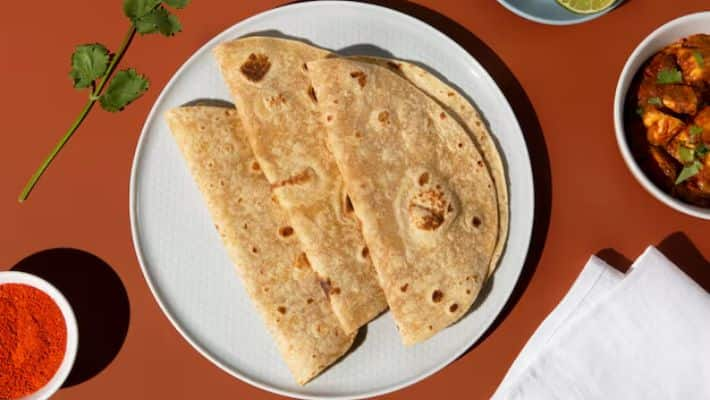Uncover the reasons behind the Indian superstition of not serving 3 rotis on a plate. Explore cultural beliefs, religious significance, and social traditions surrounding food in India.
Hinduism encompasses numerous beliefs and practices observed by many even today. Our religious texts and scriptures elaborate on these beliefs, which people incorporate into their daily lives through readings or narratives. One such belief is refraining from serving three rotis, puris, or any food item in a quantity of three. The tradition of "not serving three rotis during meals" is prevalent in many Indian societies, stemming from cultural, religious, and psychological reasons. In this article, we delve into this practice with insights from our Astro expert, Shivam Pathak.

Reasons for Not Serving Three Rotis on a Plate

1. Number 3 Symbolizes Inauspiciousness
Indian culture associates religious beliefs with specific numbers. Serving three rotis is considered inauspicious according to Vastu Shastra, as this number is linked to death. Hindu rituals, particularly during funerals and Shraddha ceremonies, involve the use of three items, such as offering three pindas (rice balls) during Shraddha. Therefore, serving three rotis during meals is avoided due to its association with death or unfortunate events. If you need to serve three rotis, you can offer two initially and then provide the third one separately.
2. Number 3 is an Odd Number
Indian culture considers even numbers auspicious, while odd numbers are sometimes deemed inauspicious. Serving food items in even numbers, like 2 or 4 rotis, is considered auspicious and balanced. Odd numbers like three, five, and seven are often avoided in regular meals, especially during significant occasions.
3. Social Traditions
Food serving traditions are often intertwined with social perceptions. Families view meals as symbols of prosperity and balance. In this context, serving three rotis is sometimes considered against family or community traditions. There's a belief that serving three rotis can hinder household prosperity or lead to undesirable outcomes.
4. Three Rotis are Associated with the Deceased
Indian culture considers three rotis as food for the deceased. It is believed that three rotis are placed in the plate offered to the departed soul. Additionally, during Pitru Paksha, when food is offered to ancestors, three rotis are served. Hence, serving three rotis is considered inauspicious.
Also Read- When Should We Not Light a Diya in Tulsi Plant?
5. Religious and Cultural Beliefs

Many Hindu traditions are rooted in religious beliefs, including those related to food. Food is considered a sacred offering from deities, and there are specific rules for serving it. According to these rules, serving three rotis is sometimes deemed inappropriate as it might contradict religious disciplines.
6. Personal and Family Traditions
Every family and community has its own unique traditions. Some families have passed down the practice of not serving three rotis for generations. There might not be a concrete religious or social reason behind it, but it could be a part of their family beliefs.
7. Ayurveda and Balance
Indian Ayurvedic traditions emphasize the balance and quantity of food. Meals are served in a way that ensures a balanced diet considering an individual's physical and mental well-being. Serving three rotis can sometimes disrupt this balance, and hence it is avoided.
8. Traditional Beliefs and Superstitions
Superstitions can also be a significant reason behind this practice. Many people consider three rotis inauspicious and associate them with negativity. Therefore, adhering to this tradition might be based on superstitious beliefs.
